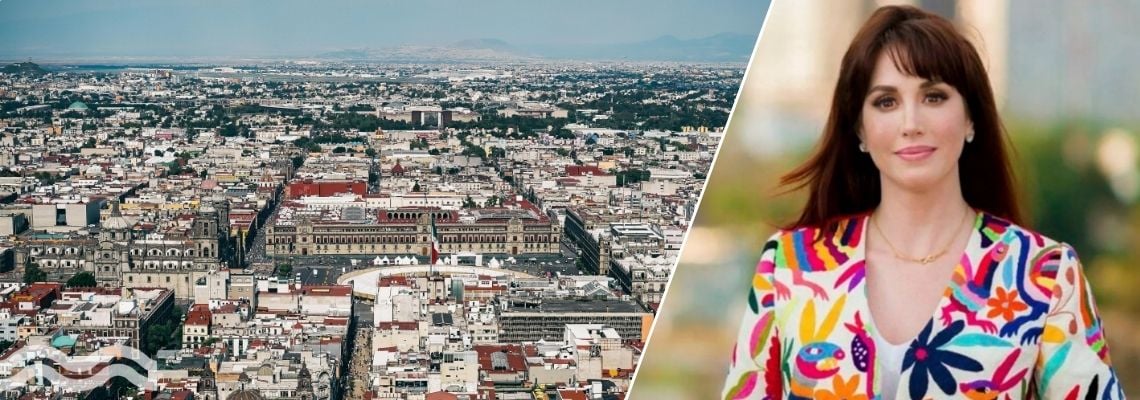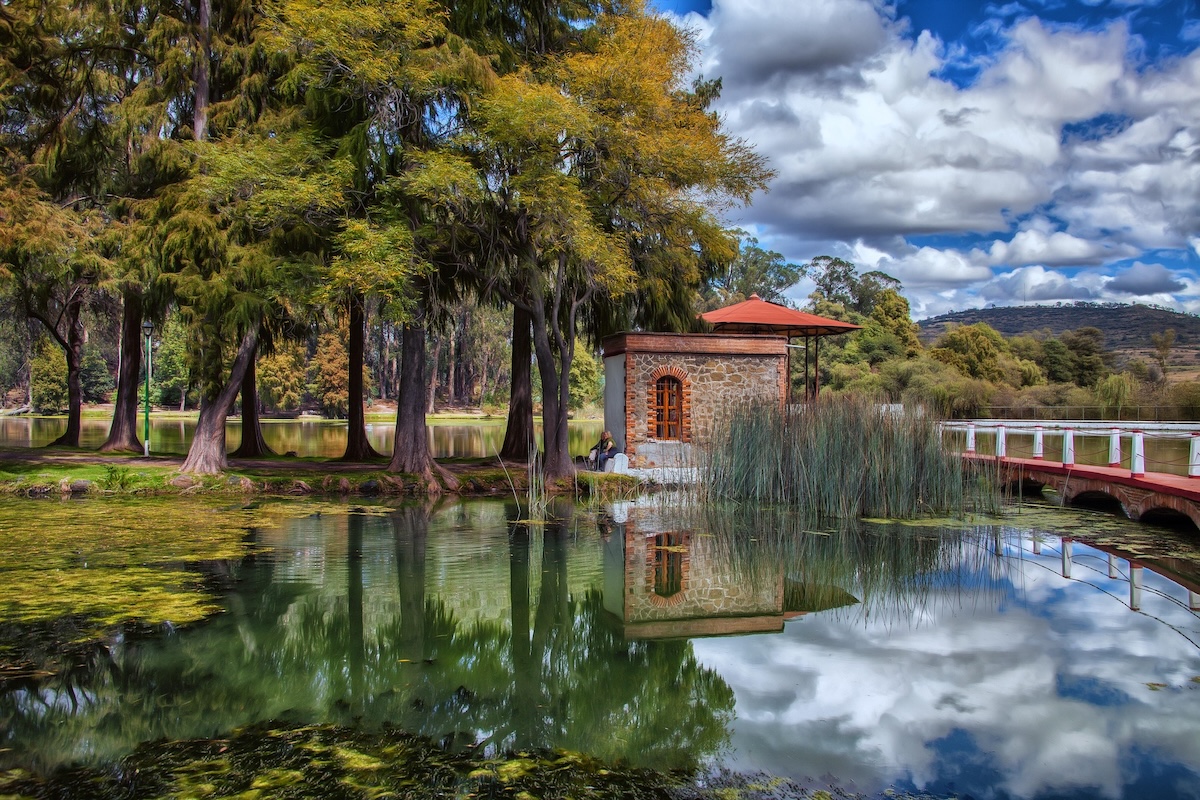Even before she was appointed as Mexico’s president, Claudia Sheinbaum had made water security a priority for her administration. Since becoming the country’s 66th president in 2024, Sheinbaum and her government have introduced numerous policies designed to improve infrastructure, with the goals of improving access to water of sufficient quality and quantity.
These policies and the actions resulting from them are uniting all key stakeholders in improving the country’s water security, says Paola Félix Díaz, general coordinator of the National Agreement for the Human Right to Water, and the head of International Cooperation at CONAGUA.
Aquatech Online speaks to Félix Díaz about how policy is changing the water outlook for Mexico.

In recent months, Mexico’s water policy has undergone a profound transformation. Under the leadership of President Claudia Sheinbaum, water has shifted from being simply a term to becoming a human right and a social cause. At CONAGUA, driven by its director general, Efraín Morales, a new narrative has been established where this human right guides all institutional actions.
Félix Díaz tells Aquatech Online: “The National Agreement for the Human Right to Water and Sustainability reflects this vision. It is now being implemented in the states through agreements that bring together governments, productive sectors, companies, and communities around a common goal: to guarantee water for those who need it most. These are not just speeches; they involve concrete commitments, investments, clear goals, and active participation from everyone.”

From January 27 to February 14, 2025, a series of forums titled ‘Transforming the Water Regime in Mexico: Towards a General Water Law and Reforms to the National Water Law’ were held.
Félix Díaz explains: “These forums aimed to provide a platform for public institutions, legislative bodies, local governments, national water users, irrigation districts, academia, Indigenous and Afro-Mexican communities, and civil society to present proposals for a General Water Law and reforms to the National Water Law.”
These reforms aim to ensure water is managed efficiently, equitably, and justly, especially for the most vulnerable communities - Félix Díaz
A structural reform of the country’s water legal framework is being promoted, including:
“These reforms,” Félix Díaz adds, “aim to ensure water is managed efficiently, equitably, and justly, especially for the most vulnerable communities.”
According to Félix Díaz, this transformation is more than a sum of programs; it is a vision of where the country is headed. It all stems from the new National Water Plan, a roadmap built through participation, aiming to make water a pillar of well-being and development with social justice.
Inspired by President Sheinbaum’s mandate and driven by Morales, the plan breaks old patterns: it centres on people, prioritises historically underserved areas, and restores balance between human development and nature.
At the heart of this new model is a statement: water governance with a human face.

Félix Díaz explains: “A mixed financial strategy has been designed, combining federal, state, and municipal public resources with private investment and international funds.”
Programs like Proagua and the Hydro-Agricultural Infrastructure Support Program (PAIH) enable the execution of potable water, sanitation, and irrigation projects with local government and operator participation.
Félix Díaz adds: “The National Infrastructure Fund (FONADIN) also supports high-impact social or economic projects through public-private collaboration and has been key in launching strategic projects nationwide.”
Key challenges include the outdated legal framework, resistance from some sectors to change historical concessions, and a lack of coordination among government levels.
According to Félix Díaz: “Institutional capacity must be strengthened, procedures simplified, and digitisation and transparency advanced; efforts already underway with the creation of RENAB.”
Updating the legal framework requires broad, inclusive social dialogue to ensure effective participation from rural communities, Indigenous peoples, agricultural and industrial users, academics, and civil society. “Only then,” Félix Díaz explains, “can a legitimate, technically sound, and socially accepted General Water Law be built.”
Overcoming these challenges requires political will, multisectoral dialogue, and technical-institutional leadership.
“We speak of results not in cold numbers, but in real-life impact,” Félix Díaz begins. “We want rural families to turn on the tap and have clean water; for rivers to stop being sources of pollution and become spaces of life again; for producers to have efficient irrigation systems that don’t deplete aquifers, ensuring food sovereignty.”
We speak of results not in cold numbers, but in real-life impact - Félix Díaz
She adds: “This is the promise guiding the new regulation: a water policy measurable not only in technical indicators but in hope, health, and equality. That’s why efforts are being made to recover water volumes for human consumption, invest in strategic projects, and restore polluted water bodies.”
Every action aims to ensure that access to water is no longer a privilege but a full and tangible right.
CONAGUA has launched a policy of shared responsibility and territorial coordination. Through state agreements, concrete commitments have been established with the industrial and agricultural sectors to:
This model seeks to transform local actors’ relationship with water resources and foster long-term cultural change.
Félix Díaz explains, in her opinion, what water security in Mexico would look like: “A sustainable water security scenario means that everyone, rural and urban, has guaranteed access to sufficient, safe, and affordable water, without compromising future generations’ resources.”
“This requires resilient infrastructure to face droughts and floods, restored ecosystems to maintain the hydrological cycle, modernised irrigation, industrial water reuse, and above all, community participation and transparent governance.”
In this moment of profound transformation, talking about water is talking about the kind of country we want to build - Félix Díaz
The National Water Plan envisions water not as a source of conflict or inequality, but as a guaranteed right, a protected common good, and a lever for fair and sustainable development.
She adds: “In this moment of profound transformation, talking about water is talking about the kind of country we want to build. President Sheinbaum’s administration has made it clear that development cannot continue at the expense of natural resources or the communities historically excluded from water access.”
Explaining the role CONAGUA is playing in shaping Mexico’s water future, Félix Díaz says: “CONAGUA is restoring the public and authoritative role of water, not as a commodity, but as a human right that must be guaranteed with responsibility and closeness to the people.”
She adds: “Today, Mexico has the opportunity to become a Latin American leader in water governance. Most importantly, this is being done not from behind a desk, but from the field, listening to those who live daily with scarcity, pollution, or inequality in water access. That is the essence of the water transformation we are building: one that starts from the ground up, centres on human dignity, and projects the country toward a more just, resilient, and united future.”